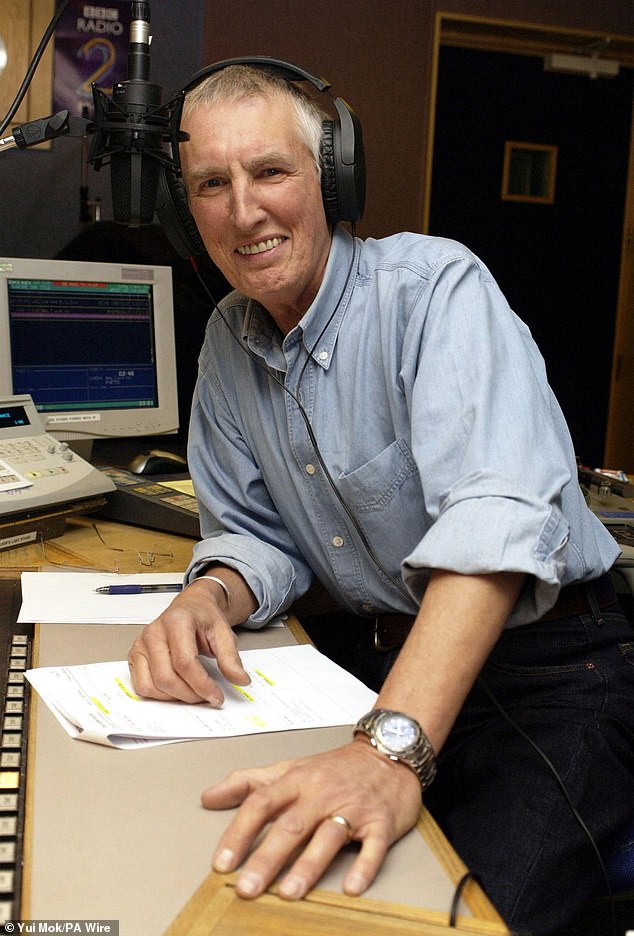Each letter took on additional meaning, an unexpected intensity. All those past hits were more than just a Sunday afternoon soundtrack: they became an echo of our old lives.
Veteran DJ Johnnie Walker, on his last radio show in a 58-year career, was choosing songs that summed up his memories, such as hopping on his yellow Harley Davidson to see David Bowie in concert, or his early days at Radio Caroline .
But other memories during this moving and emotional two-hour Sounds Of The Seventies farewell belonged to us, their listeners. Because the more Johnnie remembered, the more forgotten meanings emerged from the songs he played.
I never thought I’d get a lump in my throat at Roger Daltrey’s solo single, Giving It All Away, or The Skids’ punk rallying cry, Into The Valley.
I hadn’t heard them in decades, I didn’t even think how much meaning was hidden in the words.
BBC Radio 2 listeners cried as terminally ill Johnnie Walker, 79, said goodbye on his final show on Sunday.
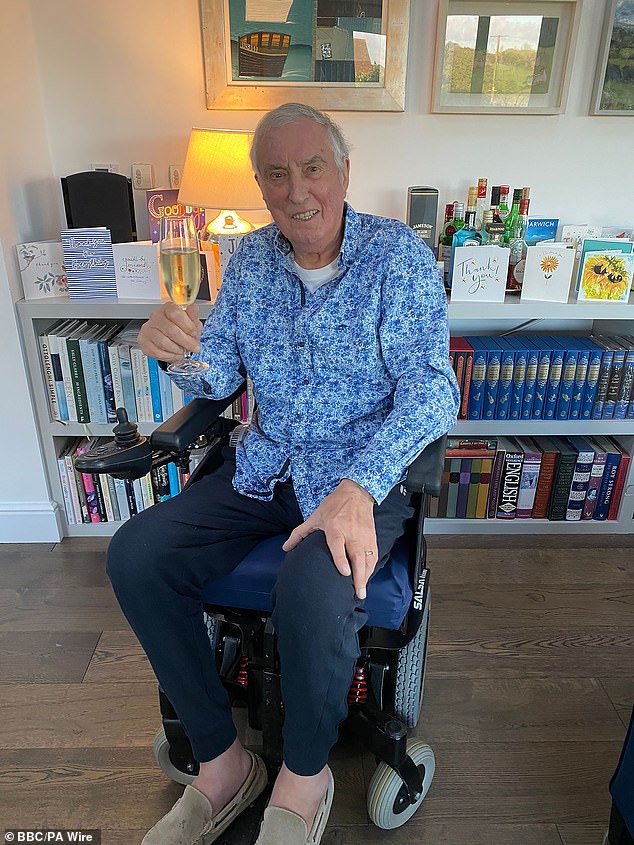
After his show, Johnnie raised a glass of soda to celebrate his last show.
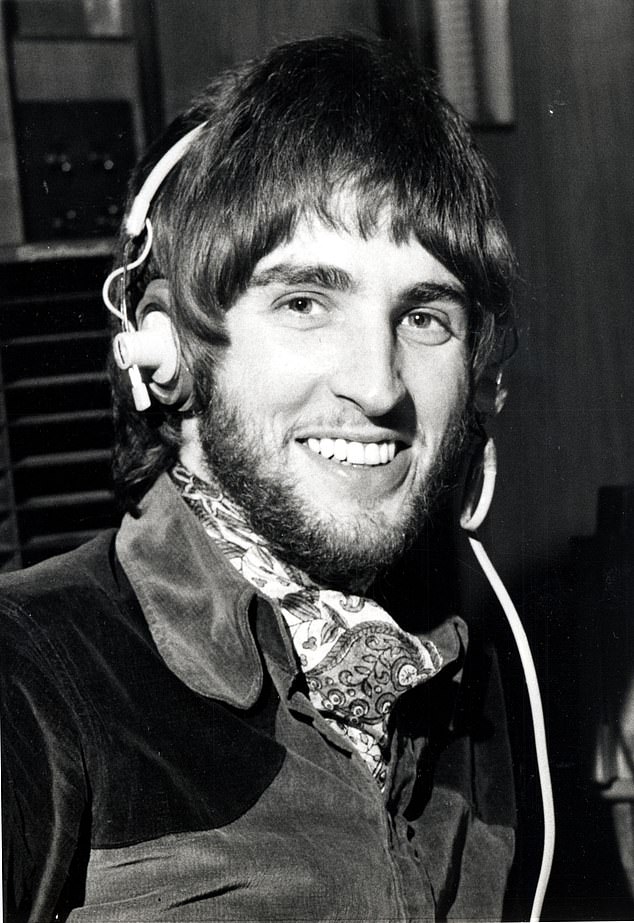
The veteran DJ began his radio career almost 60 years ago
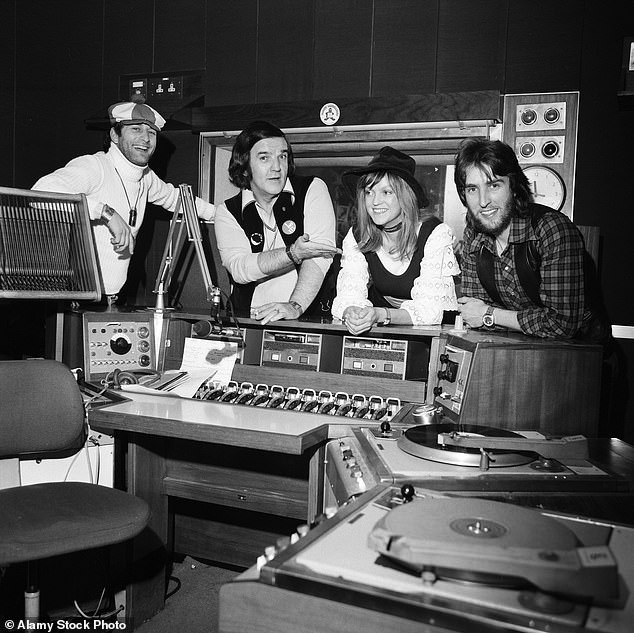
(Left to right) Emperor Rosko, BBC Disc Jockey, Alan Freeman, Annie Nightingale and Johnnie Walker
After a lifetime of catering to listeners’ requests, Johnnie chose his favorites with the care of a connoisseur. He opened with What Is Life by George Harrison. “What I feel, I can’t say,” sang the former Beatle, in a song from an album whose title was also apt: All Things Must Pass.
Johnnie’s reverence for albums, now an obsolete format, once cost him his job at the Beeb, he recalled.
In 1976, Radio 1 controller Derek Chinnery told him to drop the LP cuts and play only singles if he wanted to maintain his lunchtime programme.
Instead, he left, prompting Chinnery to complain, “You’re too interested in music, man.”
Despite struggling to breathe against the lung fibrosis that is killing him, Johnnie, 79, managed to make a typically scathing comment: “They really wanted DJs to buy a Porsche and open shopping malls and just play what they were told, and “That wasn’t me.” .’
He delivered another sardonic jab by recalling that Bowie concert at the Royal Albert Hall, “packed with people from Radio 2 who don’t really know much about music but knew David Bowie.” All those executives in collars and ties ran backstage to meet the star after the concert, and ‘bored the hell out of him!’
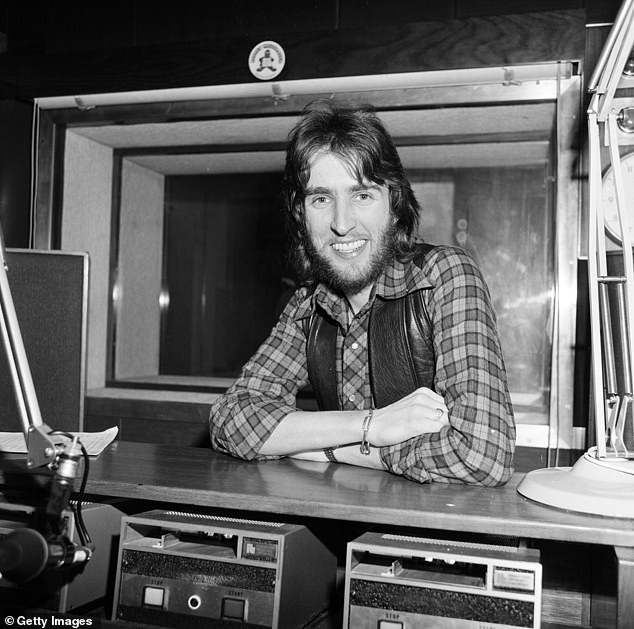
Johnnie started out in pirate radio before joining the BBC in 1969.
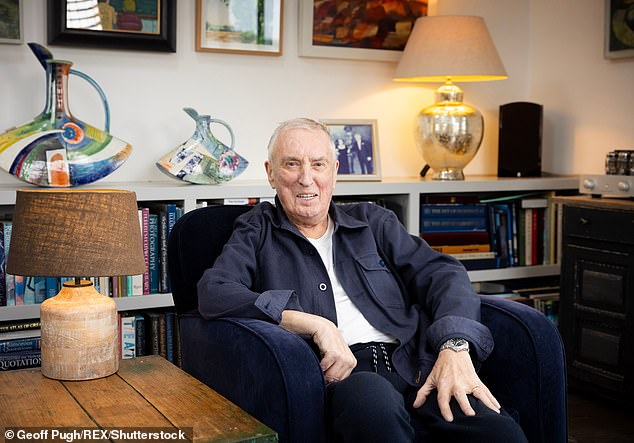
The veteran broadcaster recorded the final episode of his Sounds Of The 70s, ending a 58-year career in radio.
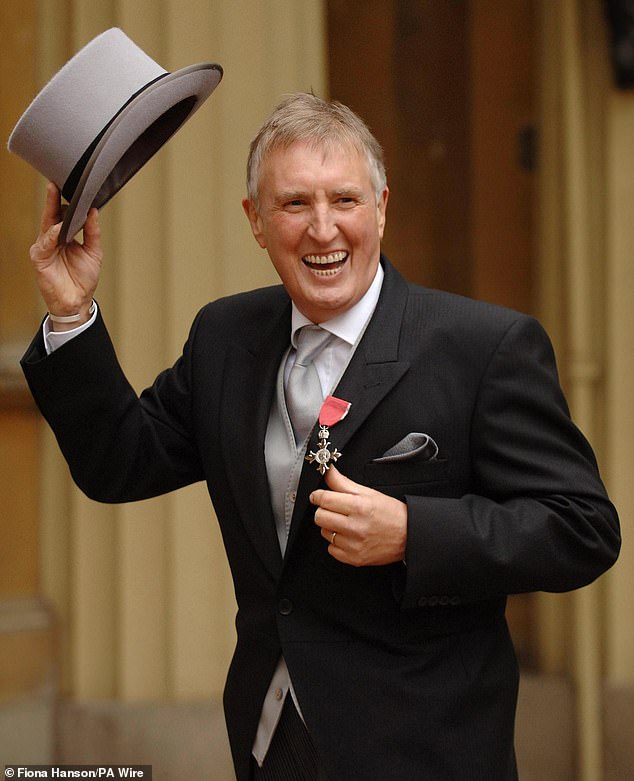
Johnnie has just weeks to live after a battle with idiopathic pulmonary fibrosis, a rare and progressive disease that affects the respiratory system.
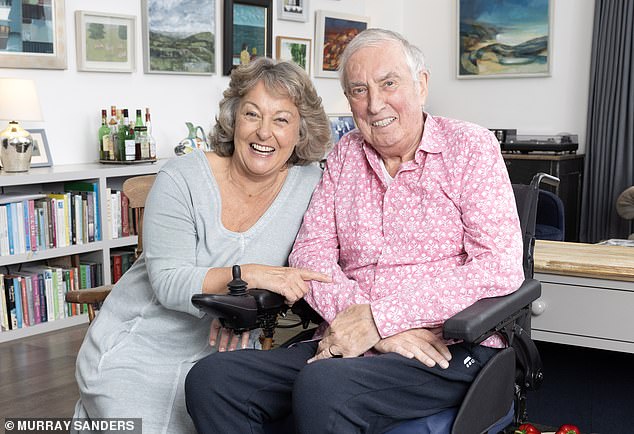
Johnnie with his wife Tiggy. The terminally ill DJ streamed many of his latest shows from his home in Dorset
Johnnie was always a rebel. In the early days of Radio 1, other presenters spoke of him with a hint of cautious trepidation, as if they feared that just meeting him might get them into trouble.
And in a cheeky interview with his wife Tiggy in the Mail earlier this month, the two laughed about how he had an oxygen tube up his nose – “in the old days, it used to be cocaine.”
I remember him slyly commenting on Radio 1 in the glam rock era that he couldn’t see the attraction of the Page 3 girls: “I’m a bottle and glass man,” he announced, using rhyming slang. When I was about nine, I was shocked that someone could get away with saying that on the BBC. And of course, only Johnnie could do it.
Tiggy was by his side throughout the final show, contributing affectionate taunts and jokes. The two developed their double act when they were stuck at home during lockdown and now, thanks to their terminal lung illness, they were broadcasting from home again.
He calls her Tiggy Stardust and played Starman in her honor. Rod Stewart left a phone message to thank him for playing The Faces before they were famous.
“You propelled a bunch of slackers to fame overnight,” he said, and promised to treat him to a pint in heaven, “if I make it through the Gates of Heaven.”
Johnnie signed with the Stones and It’s Only Rock’n’Roll, followed by Judy Collins’ silver version of Amazing Grace. “You and I have already lived together a lot,” he murmured. It wasn’t clear if he was talking to Tiggy or us.

